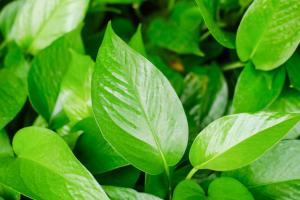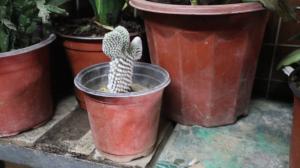Are Black Walnut Trees Toxic to Other Plants?
Black walnut trees, scientifically known as Juglans nigra, are known for their distinctive bark, beautiful foliage, and delicious nuts. However, what many people don't realize is that these trees, like many others, produce allelopathic chemicals that can negatively impact surrounding plant growth. In this article, we will explore the potential toxicity of black walnut trees to other plants and what gardeners and farmers should be aware of when planting near them.
The Allelopathic Effects of Black Walnut Trees
Allelopathy is the ability of plants to produce chemicals that can affect the growth and development of other plants around them. Black walnut trees exhibit strong allelopathic effects, particularly through the release of juglone, a toxic substance that is found in all parts of the tree but is most concentrated in the roots and fruit husks. Juglone can inhibit the growth of a wide range of plants, including vegetables, fruits, flowers, and herbs. The symptoms of juglone exposure vary depending on the plant, but they can include yellowing leaves, stunted growth, wilting, or even death.
Plants That Are Sensitive to Juglone Toxicity
While some plants are more tolerant of juglone than others, there are several types of plants that are particularly sensitive to the chemical and should not be planted near black walnut trees. These include but are not limited to:
Tomatoes
Peppers
Potatoes
Eggplant
Blueberries
Azaleas
Rhododendrons
Hydrangeas
Larches
Mountain laurel
Lilacs
Blackberry bushes
If you plan to grow any of these plants, it is best to avoid planting them within the root zone of a black walnut tree, which can vary depending on the size of the tree but typically extends about 50-60 feet from the trunk.
Alternatives to Growing Plants Near Black Walnut Trees
If you have a black walnut tree on your property and want to grow plants nearby, there are several alternatives you can consider:
Grow plants in containers: If you want to grow sensitive plants near the tree, consider planting them in containers that can be moved away from the tree when necessary.
Plant in raised beds: Raised beds can provide a buffer between the roots of the black walnut tree and your sensitive plants. However, it is still important to do your research and choose plants that are less sensitive to juglone toxicity.
Choose juglone-tolerant plants: There are some plants that are more resistant to juglone and can be safely grown near black walnut trees. These include ferns, hostas, daylilies, and most grasses.
Conclusion
In conclusion, black walnut trees are known for their stunning beauty, but their allelopathic effects can have negative impacts on surrounding plant growth. If you want to grow sensitive plants near a black walnut tree, it is best to avoid areas within the root zone and consider alternatives such as container gardening or planting in raised beds. However, if you choose to plant near a black walnut tree, be sure to do your research and choose juglone-tolerant plants to avoid any negative effects on plant growth and development.

 how many times do yo...
how many times do yo... how many planted tre...
how many planted tre... how many pine trees ...
how many pine trees ... how many pecan trees...
how many pecan trees... how many plants comp...
how many plants comp... how many plants can ...
how many plants can ... how many plants and ...
how many plants and ... how many pepper plan...
how many pepper plan...
































